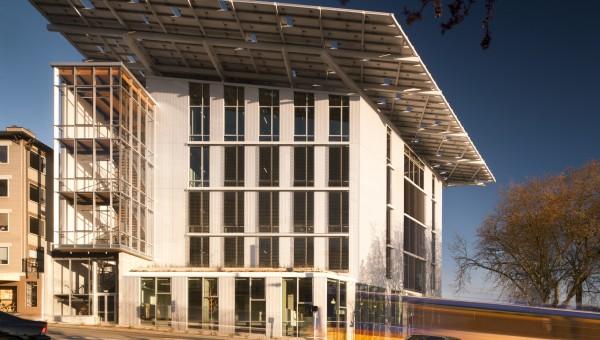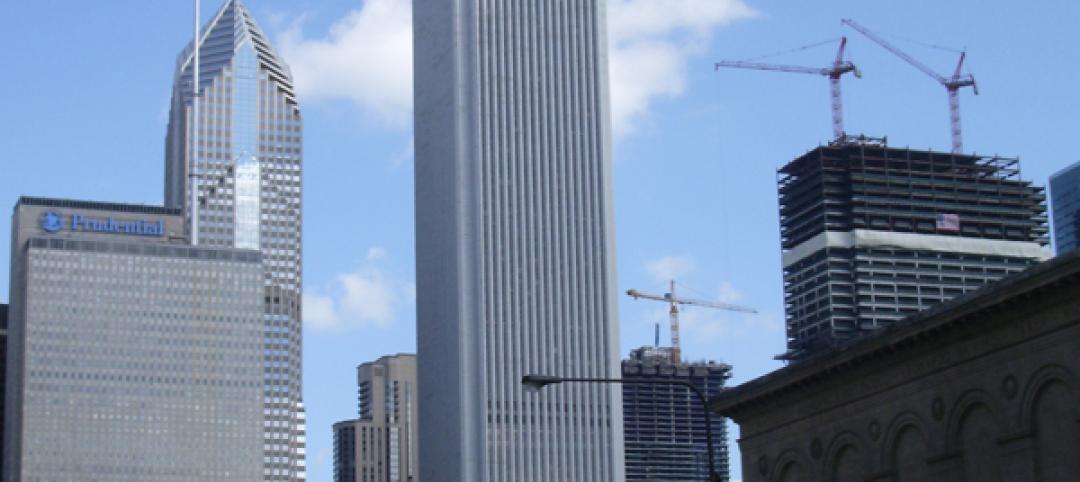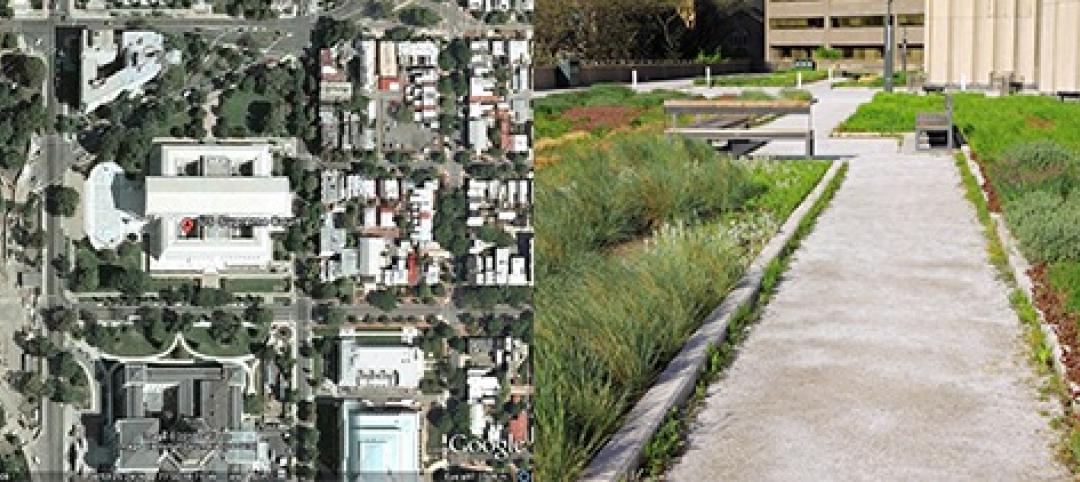The Bullitt Center in Seattle, which some say is the world's "most efficient" office building is not only influencing how other structures are built, it is contributing to revisions of codes and public policy.
The building’s design was made possible by Seattle’s Deep Green Pilot Program that allows builders to deviate from standard codes to build more sustainably. For example, the building was allowed to add two to three feet to the height of each floor to allow more daylighting. Neighbors objected to the additional 10 feet in overall building height, but the program permitted the non-conforming design.
Some of the building’s code deviations have been incorporated into the city code. For instance, the city council and the mayor had to approve changes to the building code to allow permits for “sustainability features.” This move allows the building’s solar canopy to extend all the way to the property line.
Bullitt Foundation, the environmental group that owns the building, recently signed a first-in-the-nation agreement with the local utility that will allow the foundation to sell Seattle City Light the energy it is saving or “negawatts.” The arrangement, known as MEETS (metered energy efficiency transaction structure) could be a pioneer in drawing investment funds to energy-efficiency projects.
Bullitt is also seeking final approvals from the county and state to turn the building into its own water district. That designation would allow tenants to drink rainwater collected on site and treated in the building’s basement.
(http://grist.org/business-technology/how-one-building-is-changing-the-world/)
Related Stories
| Apr 18, 2014
Massachusetts Supreme Court clarifies building code liability issue on mixed-use projects
The Massachusetts Supreme Judicial Court recently ruled that distinct portions of a mixed-used building may be treated as distinct and different structures under the state building code.
| Apr 18, 2014
First international buildings among 700-plus certified by BOMA 360 Performance Program
In the first quarter of 2014, the Building Owners and Managers Association (BOMA) International certified 66 properties in the BOMA 360 Performance Program for commercial real estate markets across the U.S and, for the first time, abroad.
| Apr 16, 2014
OSHA proposes $2.3 million in fines against Olivet Management for exposing workers to asbestos and lead
Olivet Management LLC, a real estate development and management company, faces $2.3 million in proposed fines from the Occupational Safety and Health Administration.
| Apr 10, 2014
Green Building Certification Institute partners with Well Building Institute on standard
The Green Building Certification Institute (GBCI), which administers third-party certification for the LEED standard, and the Well Building Institute will collaborate to promote the WELL Building Standard.
| Apr 10, 2014
OSHA’s construction safety advisory committee invites input on construction regulations
The Occupational Safety and Health Administration will hold a meeting of the Advisory Committee on Construction Safety and Health May 7-8, 2014, in Washington, D.C.
| Apr 10, 2014
ASTM’s International Standards in Building Codes now available in DVD and online
The compilation ASTM Standards in Building Codes contains more than 1,300 ASTM construction specifications, practices and test methods, and is now available in DVD and online.
| Apr 10, 2014
New California energy code requires building systems to be ready for demand response energy management
Starting in June, California’s latest version of its Title 24 building code kicks in, requiring several systems come with demand response capability.
| Apr 4, 2014
Green Building Initiative moves to include locally sourced materials in Green Globes
The Green Building Initiative group based in Portland, Ore., met with the Department of Agriculture on a plan to include locally sourced materials in its green building standards.
| Apr 4, 2014
White roofs outperform green roofs in reducing heat-island effect, says Lawrence Berkeley Lab
A new report from LBNL says that white roofs are three times more effective than green roofs at “cooling the globe.”
| Apr 4, 2014
ASHRAE standard aims for consistency in measuring building energy use
The standard answers such questions as: Should the measurements of a building’s area used in the equation to derive energy use per square foot be taken from the exterior dimensions or to the centerline of the wall? And, should storage spaces be included even though they are unoccupied?












